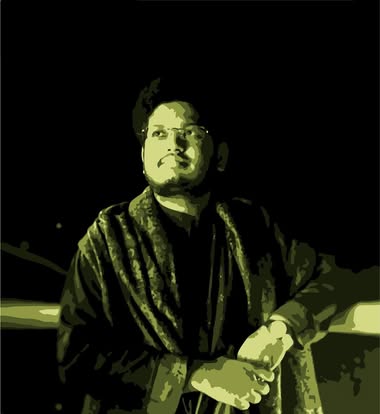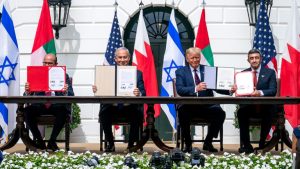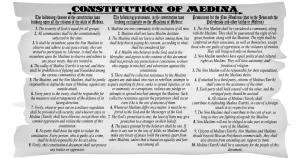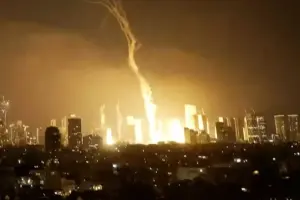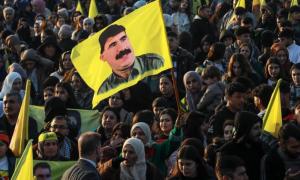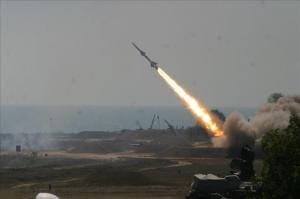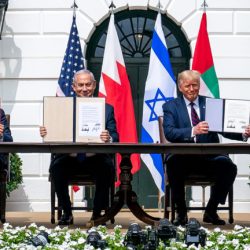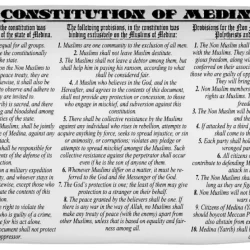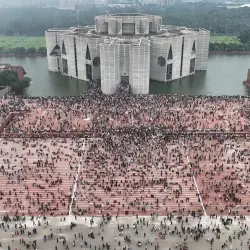In the realm of political science, Noam Chomsky‘s Who Rules the World? is a classic work. Chomsky offers a critical evaluation of power systems in international politics as one of the most well-known academics in the area, drawing on his vast experience and knowledge. Chomsky provides insight into the analysis of U.S. foreign policy and its impact on international events through his evaluation of multinational corporations, international institutions, and U.S. foreign policy.
Chomsky, one of the most well-known scholars in political science, has shaped public opinion on matters pertaining to democracy, human rights, and social justice. In this book review, I will analyze Chomsky’s work, pointing out its strength and weakness, and explaining how it affects national and international politics and policy.
Noam Chomsky’s Who Rules the World?
Noam Chomsky’s Who Rules the World? provides a comprehensive analysis of power structures in international politics. His book is divided into several sections, each of which explores a different aspect of power relations in the world. Throughout the book, Chomsky argues that power is concentrated in the hands of a few individuals and institutions, which use their influence to maintain a system of domination and control. He examines the ways in which multinational corporations, international financial institutions, and other powerful actors shape global politics and policy, often to the detriment of marginalized communities and countries.
In the first part of the book, Chomsky discusses the history of U.S. foreign policy and the ways in which it has been used to maintain global dominance. He argues that U.S. policymakers have consistently pursued a strategy of “imperial grand strategy,” which seeks to ensure that no other country or group of countries can challenge U.S. hegemony.
He argues that its foreign policy is often geared towards maintaining its own interests, even if it means disregarding the needs and aspirations of other nations. Chomsky asserts that U.S. foreign policy is largely driven by economic interests and that the U.S. government is willing to support authoritarian regimes and engage in military interventions in order to protect its own economic and political power.
In the second part of the book, Chomsky explores the role of international institutions such as the United Nations and the World Trade Organization in shaping global politics. He argues that these institutions are often used by powerful countries like the U.S. to advance their interests at the expense of less powerful countries.
Read A Diary of a Young Girl: Journey of Survival and Perseverance in Nazi-Occupied Holland
He explores the role of multinational corporations in international politics, arguing that these entities wield immense power and influence over policy decisions that affect people’s lives and livelihoods around the world. Chomsky also examines the ways in which multinational corporations influence global politics and economics, often to the detriment of workers and the environment. He critiques the neoliberal economic policies that have been championed by these corporations and the impact they have had on global inequality.
In the final part of the book, Chomsky discusses the ways in which ordinary citizens can challenge power structures and promote democratic values. He argues that power is concentrated in the hands of a few, and democracy can only thrive if citizens are informed and engaged in the political process. Chomsky encourages readers to become active participants in their communities and to work together to promote social justice and equality.
Analysis of the Book
Evaluation of the author’s arguments and evidence
Noam Chomsky‘s Who Rules the World is a well-researched and incisive analysis of power relations in international politics. His argument that powers are concentrated in the hands of a few individuals and institutions is supported by a wealth of evidence.
Chomsky was successful in his book to draw upon a wide range of sources to support his arguments. He cites historical examples, statistical data, and personal anecdotes to illustrate the ways in which power is wielded in the world. Chomsky’s writing is also highly accessible, making complex ideas and concepts easy to understand for readers who may not have a background in political science.
He presents a compelling case for the ways in which the U.S. has sought to maintain global dominance and the impact this has had on other countries and their citizens. Chomsky’s critique of U.S. foreign policy is especially powerful in light of the country’s continued role as a global superpower.
Discussion of the book’s strengths and weaknesses
One of the strengths of the book is Chomsky’s ability to connect seemingly disparate events and trends in global politics to demonstrate the interconnectedness of power dynamics. For instance, he connects the rise of neoliberal economic policies with the growth of multinational corporations, arguing that these entities have played a key role in shaping policy decisions that have led to increased inequality and social injustice around the world.
Another strength of the book is Chomsky’s commitment to highlighting the perspectives and experiences of marginalized communities and countries. He emphasizes the ways in which power structures disproportionately impact these groups, and argues that their voices and struggles must be included in any efforts to challenge these structures.
However, one potential weakness of the book is that it is highly critical of U.S. foreign policy without offering many solutions for how to address these issues. While Chomsky does encourage readers to become politically engaged, he does not offer a comprehensive plan for how to challenge the power structures he identifies. Some readers may find this lack of concrete solutions frustrating or unsatisfying.
Read Noam Chomsky: the most heated and unpleasant spokesperson of this Century
Comparison of the author’s viewpoints with other scholars in the field
When discussing Chomsky’s opinions with those of other scholars, it is obvious that his analysis fits into a larger critique of neoliberalism and its effects on international politics. Chomsky’s evaluation of American foreign policy and the degree to which it is influenced by economic interests, though, may not be shared by other scholars. Chomsky makes strong arguments, but they are also debatable, so readers may need to consider opposing viewpoints to gain a more complete grasp of these topics.
Overall, Chomsky’s “Who Rules the World?” is a significant contribution to political science and a valuable resource for anybody trying to comprehend the intricate relationships between power and politics on a global scale. Although the lack of specific solutions in the book may frustrate some readers, its capacity to provoke critical thought about power and its effects on society is a significant contribution to continuing discussions about social justice and global inequality.
Implications and Significance
Implications of the book’s arguments for international politics and policy
Noam Chomsky‘s “Who Rules the World? has important implications for global politics and governance. The book challenges the popular myths around globalization and the function of the state in determining policy by showing the manner in which power is concentrated in the hands of a select group of people and organizations.
The world needs more public participation in the political process. Chomsky urges readers to challenge the present system and work toward a society that is more just and equal. Given the current state of politics and the U.S.’s continued influence on the international scene, Chomsky’s critique of American foreign policy is particularly pertinent. This is especially crucial in light of pressing global concerns like economic injustice and climate change, which call for audacious and steadfast action to address.
Significance of the book considering current global issues
Noam Chomsky‘s “Who Rules the World? is a seminal work that has made an important contribution to the field of political science. The book’s significance lies in its ability to challenge readers to think critically about power structures in the world. Chomsky’s analysis has had a significant impact on scholarship and public discourse. His work has been cited extensively by scholars in the field of international relations and has helped to shape broader conversations around the role of power and ideology in shaping global politics.
Chomsky’s analysis encourages readers to move beyond simplistic narratives of good versus evil and to consider the ways in which power is wielded in more nuanced ways. By doing so, readers can gain a greater understanding of the complexities of international politics and the ways in which power can be used for both good and bad.
Read The Social Contract of Jean-Jacques Rousseau
Furthermore, Chomsky’s book is significant in its call to action for citizens to become engaged in the political process. By highlighting the ways in which power can be challenged and transformed, Chomsky inspires readers to become active participants in shaping their communities and the world around them.
Moreover, the book’s relevance to current global issues cannot be overstated. As the world continues to grapple with the consequences of globalization and the rise of neoliberalism, Chomsky’s analysis provides a crucial lens through which to understand these complex dynamics. The book’s emphasis on the perspectives and experiences of marginalized communities and countries also highlights the need for a more inclusive and equitable approach to policy-making that takes into account the needs and aspirations of all people.
Chomsky’s analysis of power structures in international politics is incisive and thought-provoking and has important implications for policy and practice. As the world continues to face pressing global challenges, the book’s call for increased citizen engagement and a more equitable approach to policy-making remains as relevant as ever.
In conclusion, Noam Chomsky’s Who Rules the World? is a powerful and insightful analysis of power structures in international politics. The book challenges dominant narratives around globalization and the role of the state and emphasizes the need for increased citizen engagement in the political process. While the book’s critique of U.S. foreign policy may be controversial, its ability to challenge readers to think critically about power and its impact on society is a valuable contribution to the field of political science.
Overall, Chomsky’s book is an important read for anyone interested in understanding the complexities of global politics and the ways in which power can be both wielded and challenged. While some readers may find the book’s lack of concrete solutions frustrating, its ability to inspire readers to become engaged in the political process is a significant contribution to the ongoing struggle for social justice and equality.
Overall, Noam Chomsky‘s Who Rules the World is a valuable resource for anyone interested in understanding the complex dynamics of power in international politics. While the book’s lack of concrete solutions may be frustrating for some readers, its ability to challenge readers to think critically about power and its impact on society is an important contribution to ongoing conversations about social justice and global inequality.
For further reading and research on the topic, readers may want to explore other works by Chomsky, as well as scholarship by other critical theorists in the field of political science. Additionally, staying informed about current global issues and engaging in discussions about policy and politics can help to build a more informed and engaged citizenry that is better equipped to challenge structures of power and work towards a more just and equitable world.
